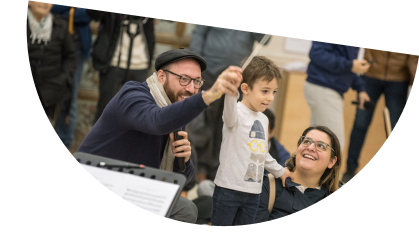We all inhabit a shared sonic universe and contribute to it with our voices, and with other sounds that we make, with or without instruments. These sounds affect other people, sometimes traumatically, sometimes as the occasion of ecstatic pleasure – and everything in between. The extreme example of this effectiveness is the use of the voice in opera – the un-amplified voice, resonating in the spaces of the body, can fill a 2000-seater opera house –and send everybody wild! What’s not to like?
How named conditions such as an asd (autistic spectrum “disorder”) affect the sounds we make, their membership of this community of sound and how others perceive them is a matter of very immediate concern to me, since many of the singers I work with have an asd (diagnosed or not). Simon Baron Cohen wrote a book positioning autism within a range of neurological styles which we all inhabit. When we look at autism like this, as part of a range of human ways of being, rather than as an illness – or- even worse –a moral failing (describing someone as “rude” for example) it fundamentally changes how we integrate it into our musical world. Of course, autism may be associated with other kinds of “disabilities”, but it may, even then, be the occasion for a very wide range of creativity. I have been running groups for people in residential care with an asd for 25 years, and I am still astonished and delighted at the variety and eloquence of their vocal expression, and privileged to count them as friends. They have sung in a performance of The Magic Flute, and they improvise their own words and music, in some cases, or join in with each others’ performances.
Most recently, a young woman I teach sat a singing examination, where, despite all the documentation being provided, her asd was not taken into consideration, despite the legal obligation in the UK “to make reasonable adjustments for disabled people”. We have had no indication of how this was, or might be, put into effect. No-one seems to be able to explain what those “reasonable adjustments” might be in the case of autism, let alone have offered any specialised training to the examiner or administrators! This is clearly bonkers. Many very accomplished musicians have an asd, and if we do not understand how to deal with them, we will be excluding an important source of talent and musical richness.
Opera Mint has a project to promote some of the quirky musicality of this constituency of musicians in a new group (GAK-in-the-box). This is a group of adult men (and various helpers) who sing, scat and make things up, and have huge fun, to the delight of all who hear them, including small children! I was influenced by the extraordinary ABLE project at Berklee College of Music in Boston, Mass. to be much more forthright in putting their music out to the rest of the world. Watch this space!
Sara Clethero

Sara Clethero is director of Opera Mint, and was previously head of voice at the London College of Music 2005-2014. She has recently completed a PhD on existential philosophy and singing at Brunel University.
sara.clethero (at) operamint.co.uk


